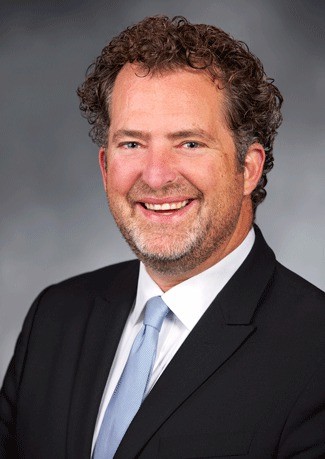By Cooper Inveen, Reporter/WNPA Olympia News Bureau
Just 18 days after its initial unveiling, Senate lawmakers have passed a $15 billion transportation package that includes an 11.7-cent increase to the state gas tax over the next three years.
That package now moves to the Democrat-controlled House where Majority Leader Pat Sullivan, D-Covington, said during a Feb. 19 media session that the package won’t be considered until lawmakers address education funding, which they are under order from the state Supreme Court to substantially increase.
Senator Kevin Ranker, D-Orcas Island, noting that funding for transportation would come at the expense of spending on education and pollution programs, voted against the bill.
“This plan is funded in part by taking almost a billion dollars away from money targeted for education and from money dedicated to cleaning up toxics in our environment,” Ranker said in a press release. “We already have very difficult education funding decisions to make and a Supreme Court order to fulfill. I question the wisdom of taking almost a billion dollars away from education before we have even had a chance to make additional investments.
Ten of the package’s 11 bills have now passed in the Senate and are scheduled to be introduced to their respective committees in the House. The package’s revenue bill passed on a 27-to-23 bipartisan senate vote Monday.
The revenue bill would fund 16 years worth of transportation projects by increasing the state’s 35.7 cents-per-gallon gas tax by five cents in July, 4.2 cents in July 2016 and another 2.5 cents in July 2017. That would bring Washington’s combined state and federal gas tax to 67.6 cents-per-gallon, second highest in the country behind Pennsylvania.
Along with the gas tax increase, the revenue bill would also increase car-tab fees by $15 in the program’s first year and then by an additional $8 in 2022. The classified skill examination fee for obtaining a commercial driver’s license would increase from $100 to $250.
The package would fund $8 billion in widening projects on I-405 east of Seattle, I-90 through the Snoqualmie Pass corridor and I-5 near Joint Base Lewis-McChord south of Tacoma. It would also fund a new north-south I-395 corridor in Spokane and allocate $1.2 billion for completing the west side of the new Highway 520 bridge between Seattle and Bellevue.
The revenue bill cleared the Senate March 2 with 19 Republicans and 8 Democrats voting in support. The corresponding spending bill also passed that day in a 41-to-8 vote.
The package also includes some funding for rural transit, vanpools, bike paths, pedestrian walkways and highway safety. However, Republicans have fought to include a provision in the revenue bill that would move all of these funds to the state highway account if Gov. Jay Inslee—or any other governor in the next 16 years—implements a low-carbon fuel standard. Committee staff have previously said that the language could be interpreted to also include any carbon emission reduction plans.
“In addition to taking money away from the environmental cleanup account,” Ranker said, “this proposal unfortunately includes a poison pill that would reroute millions of dollars in transit investments into pavement if the governor takes action on climate change.”
“For these reasons, I joined all 23 Democratic senators in proposing a clean transportation package, one that gets Washington moving by building critical infrastructure and creating hundreds of thousands of jobs without seriously impacting our schools or the health of our communities,” Ranker said. “Unfortunately that clean proposal was not accepted.”
— Editor’s note: Articles by Olympia News Bureau are provided to the Journal via its affiliation with Washington Newspapers Publishers Association.
— Journal editor Scott Rasmussen contributed to this report.



